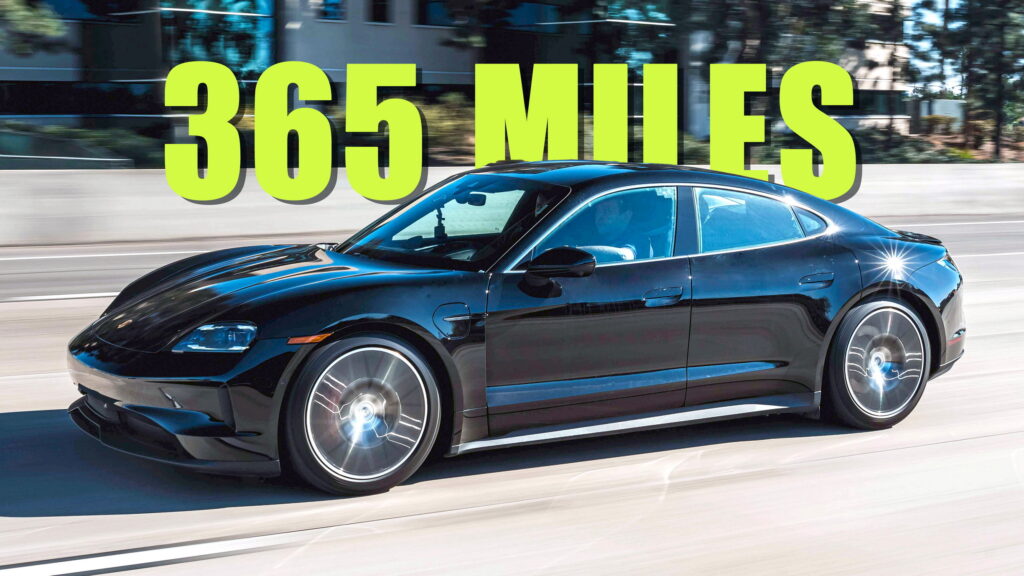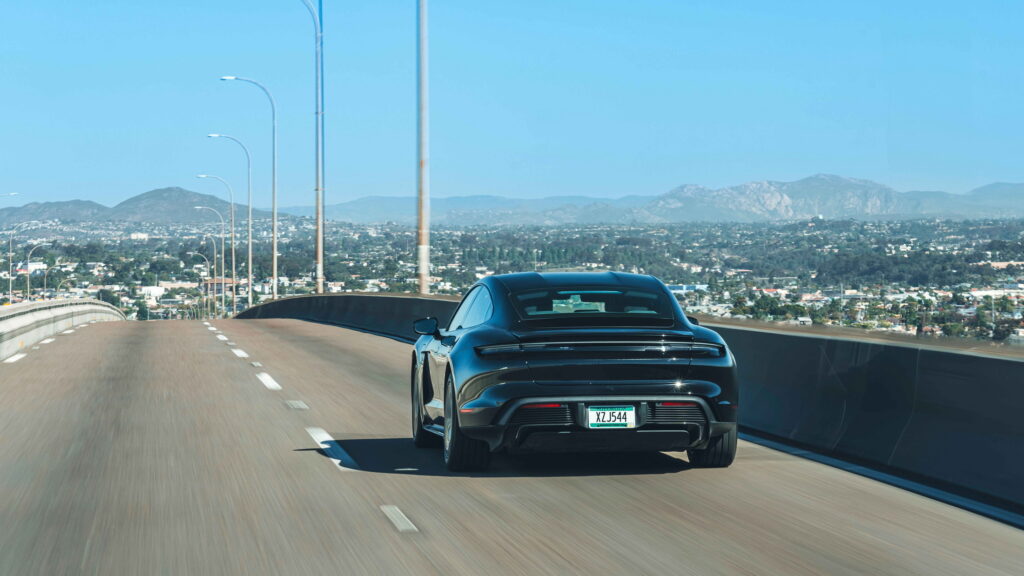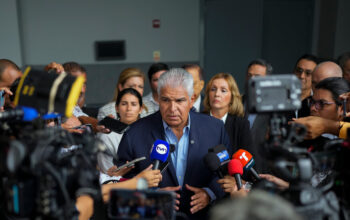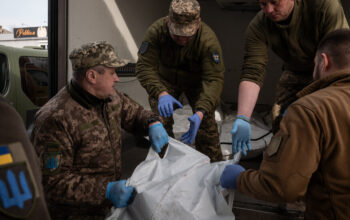Although not an official EPA range rating, Porsche’s real-world test reveals impressive gains for the facelifted model
2 hours ago
 –>
–> 
–>
Porsche is set to unveil its updated Taycan in the coming days, and to get us excited, it’s showing off a bit. The automaker claims that in a real-world test it conducted with members of the media, it found that the car could go up to 365 miles (587 km) on a single charge.
That’s not an official government range rating, but Porsche is hailing the result as a sign of the massive improvements it has made with the facelifted Taycan that will likely wear a 2025MY badge. Although it’s too early to make a direct comparison, the updated model managed to go more than 100 miles (161 km) farther than the current model, which tops out at 246 miles (396 km) per charge, according to the EPA.
Porsche says that its test was conducted on Interstates 405 and 5, driving between Los Angeles and San Diego, California. The vehicles were driven at speeds of up to 75 mph (120 km/h), the highest speed it said was permitted on the route.
advertisement scroll to continue

In all, the company tested four vehicles, all of which were equipped with the big, Performance Battery Plus. The Taycan Cross Turismo 4 (equipped with 21-inch tires) maxed out at 318 miles (512 km), the Taycan Turbo (also on 21-inch tires) covered 345 miles (555 km), and the Taycan 4s (with 20-inch tires) managed to run 343 miles (552 km). It won’t surprise you to discover that the longest-range model was a single-motor Taycan with 19-inch wheels, which managed to cover 365 miles (587 km) in Porsche’s test.
Kevin Giek, the vice president of the Taycan model line, described that as “a great result.” He added that “the range test in Southern California impressively demonstrated how efficient the reworked Taycan is.”
Read: Facelifted 2025 Porsche Taycan Slices Cold Weather Charging Times In Half
While the results certainly are impressive, they don’t necessarily mean that the updated Taycan will be rated as high by the EPA, which has burned Porsche before. The test also occurred in favorable conditions, with mild temperatures of 79 degrees Fahrenheit (26 degrees Celsius), and on dry roads for two out of three days of testing.
Porsche says that it is just as focused on ultimate range as it is on charging speeds. For the tests, the vehicles were plugged in at fast-charging stations, and they were repeatably able to go from 10 to 80 percent state of charge in “well under 20 minutes.”
In particular, the vehicles were charged at the Electrify America Charger in Torrance/Los Angeles. During these tests, the Taycan consistently achieved over 300 kW charging power for extended durations. Porsche noted that this testing phase resulted in significant improvements in charging performance, reduced charging times, and a faster initiation of the charging process
Giek points out that’s part of Porsche’s overall EV strategy.
“We are continuing to focus on our ‘fast travel’ strategy for electric mobility: short charging stops paired with high real-world ranges thanks to efficient drives,” said Giek.


